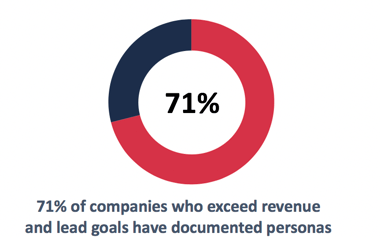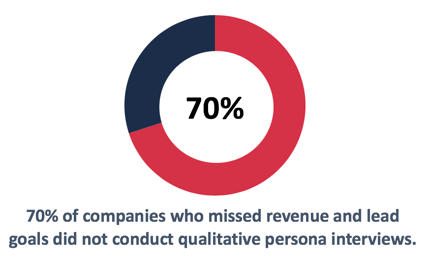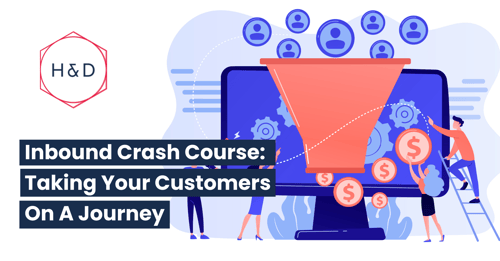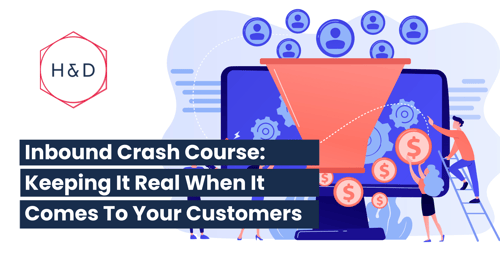
It doesn’t really matter how awesome your product or service is if you don’t know who to sell it to. If you don’t know who your audience is, you won’t be able to make them take notice of it.
That’s the point of a buyer persona. Put simply, a persona is a semi-fictional character that personifies your ideal customer. Using a mix of market research, data diving and some calculated assumptions, our marketing team creates detailed representations of our clients’ customers based on their desires, actions and buying preferences. You might have one persona or you might have four; it all depends on your offering and if it’s marketable to a wide range of audiences.
A buyer persona might also be called a marketing or profile. They essentially mean the same thing for our purposes as markers (but they are different to a user persona). Whatever you call them, if you use them correctly, they all could transform how you do business.
The Benefits of Buyer Personas
 nas
nas
(Source: Understanding B2B Buyers Benchmark Study, Cintell)
1. Provide Direction to Your Marketing Strategy
If you understand who your audience is, what they want from you, and how they want to connect with you, then your marketing strategy has practically written itself. Well, maybe not quite, but you’ve certainly got clear direction!
How and where you advertise will change depending on your personas. A younger audience is more likely to respond to social media advertising than an elderly one, for example. But they might surprise you! That’s why it’s important not to make assumptions about who your customers are or how they behave. We need to rely on the research and the data.
2. Save Time & Money
If you don’t know who your audience is before you start turning marketing theory into practice, you could potentially waste a lot of time and money trying to sway people who you’re not likely to convert anyway.
Understanding who your audience is by carrying out persona development sets a foundation for your marketing strategy. Doing this before you start spending time and money developing your strategy means that you’ll see a much greater return on investment (ROI).
3. Find Where You Fit in Your Customers’ Lives
During persona development, it’s easy to create generic stereotypes based on assumptions about gender, age and income. For example, you might assume that a 35-year-old female who earns six figures doesn’t have a family and is fairly self-sufficient. In fact, the opposite might be true.
To avoid stereotypes that might not be helpful to anybody, ask your customers what they like, what they don’t like and what they do, to find where your product or service fits in their lives. Asking a much more intimate range of questions like ‘where do you get your news from?’ or ‘where do you buy new shoes from?’ will give you a more accurate idea about what influences them to make those purchasing decisions - and therefore what might influence them to purchase your product or service.
How to Develop Personas for Your Business

(Source: Understanding B2B Buyers Benchmark Study, Cintell)
While your final personas will be inherently fictional people, the information that makes them up is based on as facts wherever possible. The most successful marketing personas utilise as many real-world insights as possible to create the most accurate picture of your customers imaginable.
Interviews
Simply talking to your existing customers is the first step when it comes to persona development. Questionnaires, surveys and interviews are fundamental to persona development because they offer customers the opportunity to give real answers about their buyer behaviour.
The risk with asking your customers what they do is not listening to them. Too often businesses think they’re doing a good thing by reaching out to their customers, then they fail to do anything with the intel they collect. If you’re going to ask them for their opinions, you need to commit to using that data to make changes and focus your marketing strategy.
CRM Data
If your Sales and Marketing teams use a smart CRM like HubSpot, you’re always just a few clicks away from a tonne of data that can be immediately applied to your marketing research. HubSpot collects a huge range of data about user activity, which is a valuable accompaniment to any persona development.
How to Make a Marketing Persona Work for Your Business
So now you’ve done your persona development (you might have just one persona, or you might have a range), what do you do with them?
The answer is that personas are central to every marketing decision you make. It doesn’t matter what you’re doing - marketing on social media, rebranding, email marketing, blogging, literally anything - your personas should influence everything you do, from how you position your product (or even how you design your product), through to the channel or medium you use to connect with them.
Creating Your Own Personas
Some businesses choose not to create their own marketing personas but as a result, they frequently don’t see the same kind of results as businesses that do. Keen to give marketing personas a go but not sure where to start? Book a meeting with someone from the Hype & Dexter team; we’d love to point you in in the right direction.
What's your biggest challenge when it comes to creating personas? Let us know in the comments below.




